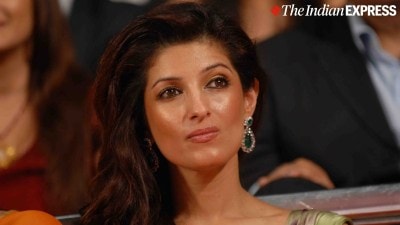Cckney Crry
What8217;s the browhahaIndians are certainly raising eyebrows here. And we mean literally too. Suddenly, the trend for eyebrow maintenance ...

What8217;s the browhaha
Indians are certainly raising eyebrows here. And we mean literally too. Suddenly, the trend for eyebrow maintenance has become de rigeueur for fashion folk and celebrities 8212; and it8217;s the Indian contingent leading the way in this department. None other than Harrods has launched an eyebrow corner 8212; The Brow Bar 8212; in their lavish Urban Retreat zone of beauty treatments. And the specialist running that show is Shavata, who goes by only her first name 8212; rather like Madonna. Shavata8217;s celebrity clientele includes Cherie Blair, Cher and Belinda Carlisle among others 8212; she8217;s even launched her own range of brow utensils now sold at high street giant Marks 038; Spencer.
8216;8216;It8217;s all taken off very quickly,8217;8217; said Shavata when I hooked up with her at Harrods recently. 8216;8216;It was after I did the eyebrows for a senior Vogue editor that my name got around because she felt that a simple eyebrow tidy does the equivalent of a mini-facelift. You instantly look fresher and younger.8217;8217; Nothing like her quick wax-and-tweeze.
Slow Roast, Bangla style
You would think the observation comes from a traditional Brit, possibly a blue-blooded aristo and definitely a patriot, right? Wrong.
This is Bangladeshi-born restaurant-success story owner Iqbal Wahhab. Having done his bit to spice up the Bangladeshi spread at UK curry houses 8212; and changing the pub night out for a certain section of society as 10 pints followed by a vindaloo 8212; he then created one of the most successful Indian restaurants in London, the Cinnamon Club at Westminster.
8216;8216;I don8217;t like getting bored so I needed another challenge,8217;8217; says the LSE graduate. 8216;8216;And what could be a greater challenge than bringing that element of success to British cooking8217;s reputation?8217;8217;
So, on the site of Britain8217;s oldest surviving food market, Borough Market, Iqbal is launching Roast this month. Here8217;s to suckling pigs and rotating chickens!
Marrying Indira, BBC8217;s Mother India
This week, BBC8217;s documentary Indira Gandhi: The Killing of Mother India was billed as showing previously unseen footage. At first, however, it looked as though it had cast all the usual suspects: there was commentary by Sir Mark Tully who described Bhindranwale as 8216;8216;not particularly intelligent, but definitely charismatic8217;8217;, plus interviews with Arun Nehru et all. It didn8217;t help that the documentary launched immediately into cliches 8212; the late prime minister was a 20th century icon who was 8216;8216;loved and loathed in equal measures8217;8217;, she was also regarded as being 8216;8216;the architect of her own demise8217;8217;. But Nick Read who produced, directed and wrote the programme, wove in the fascinating footage of her wedding to a handsome young Feroze Gandhi.
And it was this depiction of a blossoming young woman, who arrived in Britain to study at Oxford as a shy teenager, yet returned to India to marry a man her father had misgivings about which won it most points.
Green tea-ser, this one
8216;8216;When I was researching the cuisine for Zuma, I discovered all the different properties for green teas and white teas. There is so much that we haven8217;t tapped into yet.8217;8217; And then, Divia Teas made it to Harrods and Harvey Nichols. I8217;m assuming she8217;s not taking them back to the East just yet.
- 01
- 02
- 03
- 04
- 05































